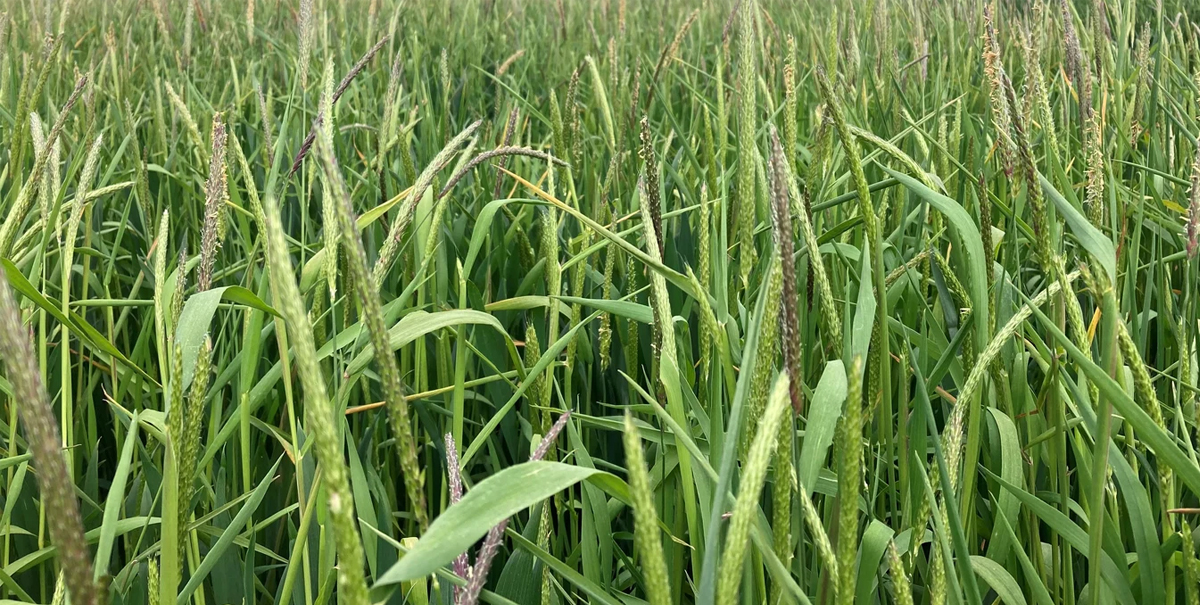
Researchers Find Herbicide Resistance in Blackgrass Caused by Pre-existing Genetic Variation
April 19, 2023| |
A team led by researchers of the Max Planck Institute for Biology Tübingen and the University of Hohenheim in Stuttgart has found that resistance to herbicides is mostly attributed to genetic variants predating the use of herbicides.
In Europe, blackgrass has become the most economically damaging herbicide-resistant weed. Farmers all over Europe face an increasingly difficult battle against blackgrass. The team of scientists led by Detlef Weigel (Max Planck Institute for Biology Tübingen) and Karl Schmid (University of Hohenheim) studied the evolutionary mechanisms of how resistances arise. The two most common herbicides that have been used against blackgrass impede the activity of either one of two proteins, which are both vital for the weed to thrive.
The researchers generated a reference genome of blackgrass and analyzed the genetic structure of resistant populations. The team found that variation in most resistant populations indicates that the spread of the resistances is the result of pre-existing gene variants, and only to a lesser degree of spontaneous mutations. The researchers then compared their empirical data with simulations of different scenarios for adaptation, confirming that the target-site resistance variants were likely present already before herbicides started to exert selective pressure.
For more details, read the news article in the Max-Planck Society's Newsroom.
| |
You might also like:
- Herbicide Resistance Predates GM Crops, Says Weed Scientists
- Scientists Discover Gene Controlling Multi-Herbicide Resistance
- University of Illinois Study Opens Black Box of Herbicide Resistance
- Researchers Identify Key Herbicide Resistance Gene in Ryegrass
- Pocket K No. 10: Herbicide Tolerance Technology: Glyphosate and Glufosinate
Biotech Updates is a weekly newsletter of ISAAA, a not-for-profit organization. It is distributed for free to over 22,000 subscribers worldwide to inform them about the key developments in biosciences, especially in biotechnology. Your support will help us in our mission to feed the world with knowledge. You can help by donating as little as $10.
-
See more articles:
-
Plant
- Researchers Find Herbicide Resistance in Blackgrass Caused by Pre-existing Genetic Variation
- ISU Scientists Report More Benefits of Bt Corn to Farmers
- Study Reveals Mechanism to Regulate Rice Root Hair Length
- Gene-edited Crops: Enabling Future Commercialisation and Trade
- New ISAAA Double Helix Magazine Focuses on Gene Editing
- Tropic's Gene-Edited Banana Determined as Non-GMO in the Philippines
-
Animal
- Environmental Sustainability and Animal Welfare Increase Appeal of GM Salmon in the US
- Indian Government Urged to Invest in Gene Drive Research
-
Health
- Plant-based SARS-CoV-2 Vaccine Candidates Exhibit Broad Spectrum Protection During Trials
-
Read the latest: - Biotech Updates (January 21, 2026)
- Gene Editing Supplement (January 28, 2026)
- Gene Drive Supplement (February 22, 2023)
-
Subscribe to BU: - Share
- Tweet

